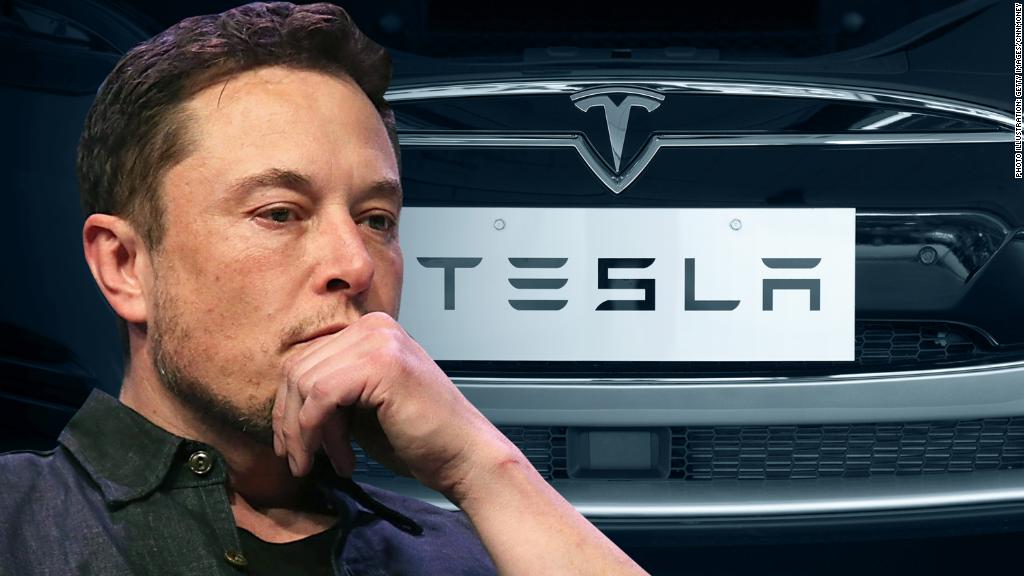
Elon Musk is hard at work disrupting industries, such as transportation and energy, and plans to go to Mars to save humanity from extinction. But even with these ambitions, the billionaire entrepreneur still found time to silence an anonymous blogger.
The latest example of Musk's focus on protecting the image of his companies — and himself — came this week when a blogger critical of Tesla shut down his own Twitter account and stopped writing for the financial website Seeking Alpha.
According to the author, who used the pseudynom "Montana Skeptic," Musk called his boss and threatened to sue if he continued to write for Seeking Alpha, which allows anyone to post stories, including with pseudonyms. (Montana Skeptic was shorting Tesla, meaning he bet money the company's stock price would fall. If Tesla succeeded, he stood to lose.)
To avoid dragging his boss into potential litigation, Montana Skeptic chose to no longer publish content on Seeking Alpha.
Seeking Alpha's editor George Moriarty responded to the news Wednesday, stating his platform will continue to embrace pseudonymity and give a voice to all investors.
Montana Skeptic said he believes Musk learned of his identity and place of employment after it was revealed by social media users. When asked if he called Montana Skeptic, Musk responded on Twitter that he'd "never heard of this girl." He later tweeted an image of Miley Cyrus, the actor who once played a character named Hannah Montana, with the words "they grow up so quickly." The tweets have since been deleted.
In a statement, Tesla said that the blogger's employer was a longtime Tesla supporter and one of the first to purchase a Model S.
So why is Elon Musk going after no-name bloggers who criticize Tesla? Because right now, the company needs all of the hype it can get.
Tesla has had a challenging year. It is burning money at an increasing rate and had to lay off 9% of its staff in June. Tesla also repeatedly missed production goals for the Model 3 and has yet to sell one at the long-promised price of $35,000.
Related: Tesla's magic is wearing off as Model 3 excitement dwindles
According to some experts in the industry, Musk must maintain the hype and story surrounding his vision of the future.
"Confidence in Tesla is an existential issue," Benedict Evans, a partner at venture capital firm Andreessen Horowitz tweeted earlier this year. "It has to raise lots more capital, based on public confidence its vision will work. It lives on perception."
University of Maryland business professor David Kirsch argues Musk's recent irritable behavior on Twitter highlights how he has lost control of the narrative surrounding Tesla.
"Given how much he talks about how busy he is, and [Tesla is undergoing] production hell — and he's been pulling out a sleeping bag on the factory floor — it raises some question about how thin-skinned he is that he'd need or choose to take time to silence one measly critic on a stock blog," Kirsch said.
Meanwhile, Veljko Fotak, a University at Buffalo professor who researches short-selling, expects that silencing Montana Skeptic will backfire by attracting more attention to a critic who isn't widely known.
"He'd better to ignore the critics and try to prove them wrong," Fotak said.
Over the years, the Tesla (TSLA) CEO has gone to great lengths to shape the perception of his businesses, including Tesla, SpaceX and the Boring Company.
He often reveals product and company news on his popular Twitter account which has 22 million followers, rather than allowing his communications team to take the lead. Even before the incident with Seeking Alpha, Musk has been known to personally reach out to high-ranking editors of publications that criticize his businesses.
When journalist Ashlee Vance began writing his best-selling 2015 book on the entrepreneur, Musk had unique demands, too. He initially requested to read the book before publication and add footnotes in places he felt were inaccurate. (Vance didn't agree to do that.)
As effective as Musk has been at spinning stories about his companies in the past, he may need to take a break from engaging so heavily in media coverage.
Earlier this month, Musk apologized for calling Vernon Unsworth, one of the Thai cave rescuers, a pedophile without justification after he called Musk's attempt to help save the stranded boys with a "kid-size submarine" a PR stunt.
Vivek Wadhwa, who teaches entrepreneurship at Carnegie-Mellon University, suggests Musk should delete Twitter from his smartphone to cut down on spontaneous tweeting.
"Anyone in his situation would reach a breaking point if they were harangued like he was," Wadhwa told CNNMoney. "He is both the Edison and Einstein of our times. All of our heroes were imperfect as is Elon."

